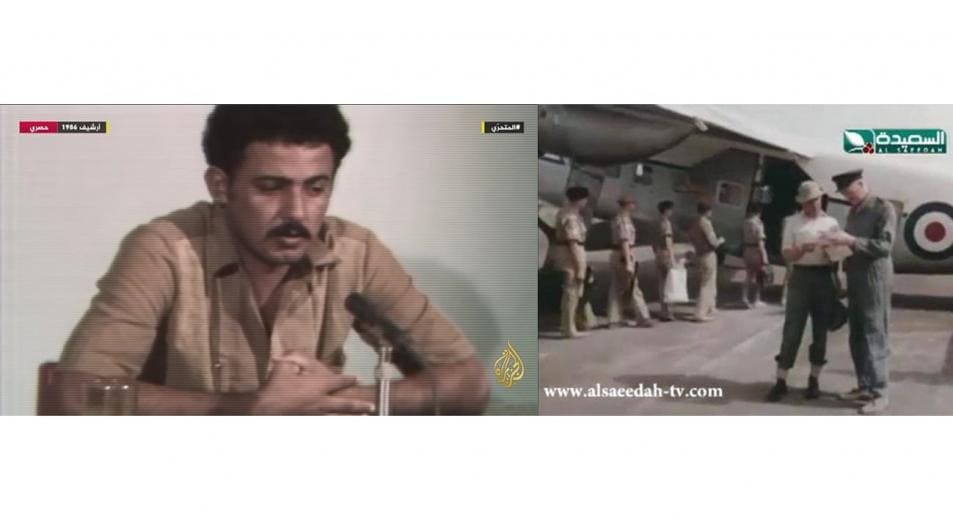
Historic scenes of the official Aden Channel on the screen of Al-Saeeda and Al-Jazeera channels - South24 compilation
Last updated on: 06-10-2022 at 6 AM Aden Time

Raad Alrimi (South24)
On August 21, the Qatar-owned channel Al-Jazeera broadcasted a new episode of "Al-Motahhari" (investigator) program, shedding light on historical facts that occurred decades ago in the former People's Democratic Republic of Yemen, or what was known as "South Yemen", under the title of "The Enemy Brothers".
The episode, which was divided into two parts and prepared by the Northern journalist Jamal Al-Maliky, included video footage from the official Aden Channel archive of trials and scenes from the January 13, 1986 battle between the wings of the Socialist Party. The video clips brought the issue of the "looting" of the Aden Channel archives back to the headlines.
As a result, Southern activists launched a campaign of condemnation on social media, demanding accountability for those responsible and those involved in looting the historical archive of one of the oldest television channels in the Arabian Peninsula and the region. Southerners accuse the former Yemeni regime [the unity regime] of looting the archives of the Aden Channel after the invasion of South in the summer of 1994.
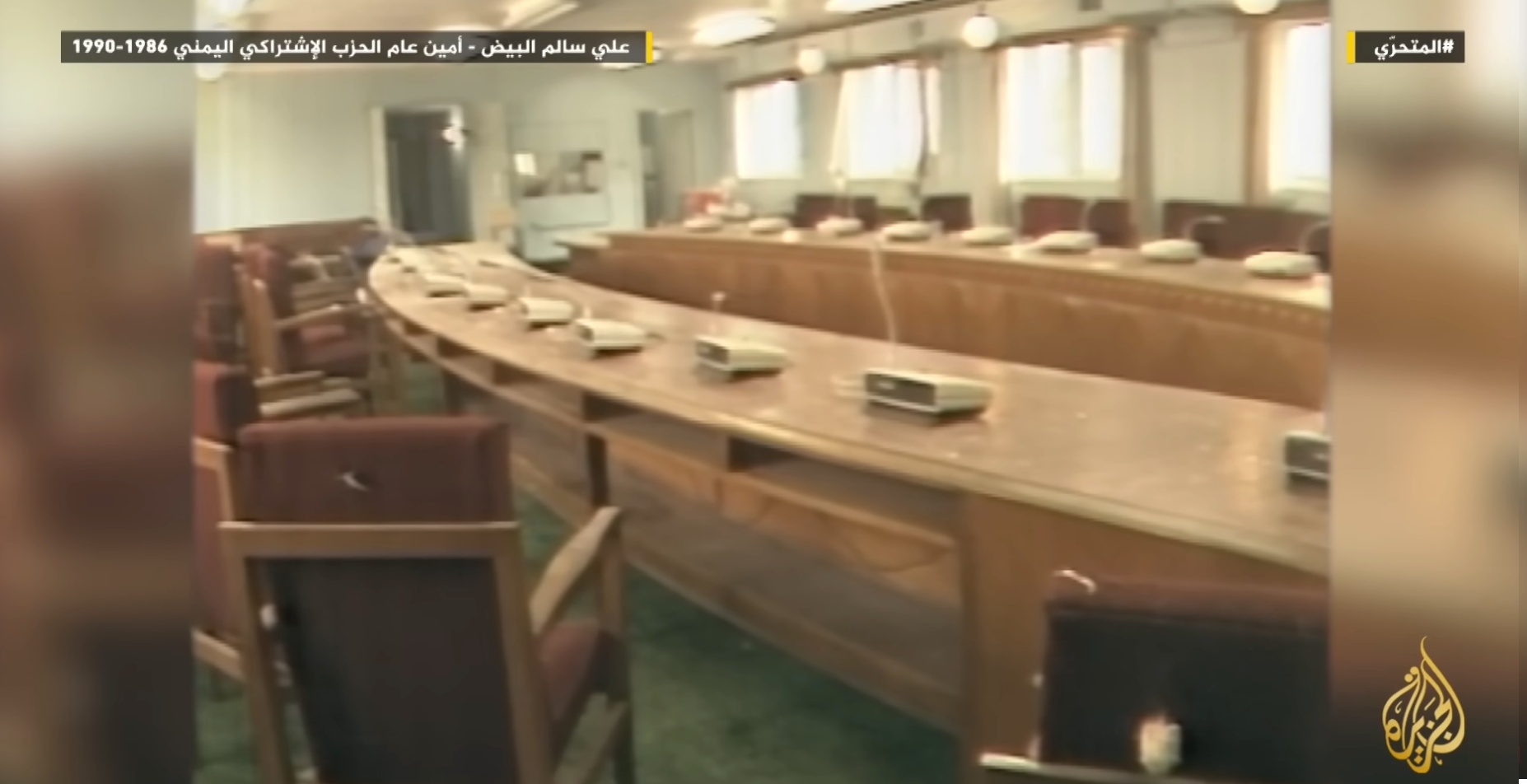
A scene from the archive of Aden Channel that appeared on Al-Jazeera channel, showing one of the scenes of the events of January 13, 1986, which Al-Jazeera re-evoked in conjunction with the recent events of Shabwa and the internal dialogue efforts (Extract - South24)
In this investigation, "South24 Center" reveals the secrets and story of the confiscation and transfer of more than 7,000 tapes from the official Aden Channel library and the parties and persons directly responsible for this, based on the accounts of people directly related to the incident, including the driver of the vehicle that transported the archive from Aden to Sanaa with official instructions.
"South24" also listened to the opinions of officials and current employees of the Aden Radio and Television sector, and contacted the responsible media authorities in the state, such as the Ministry of Information and the National Southern Media Authority, to inquire about their supposed role in what the archive was exposed to.
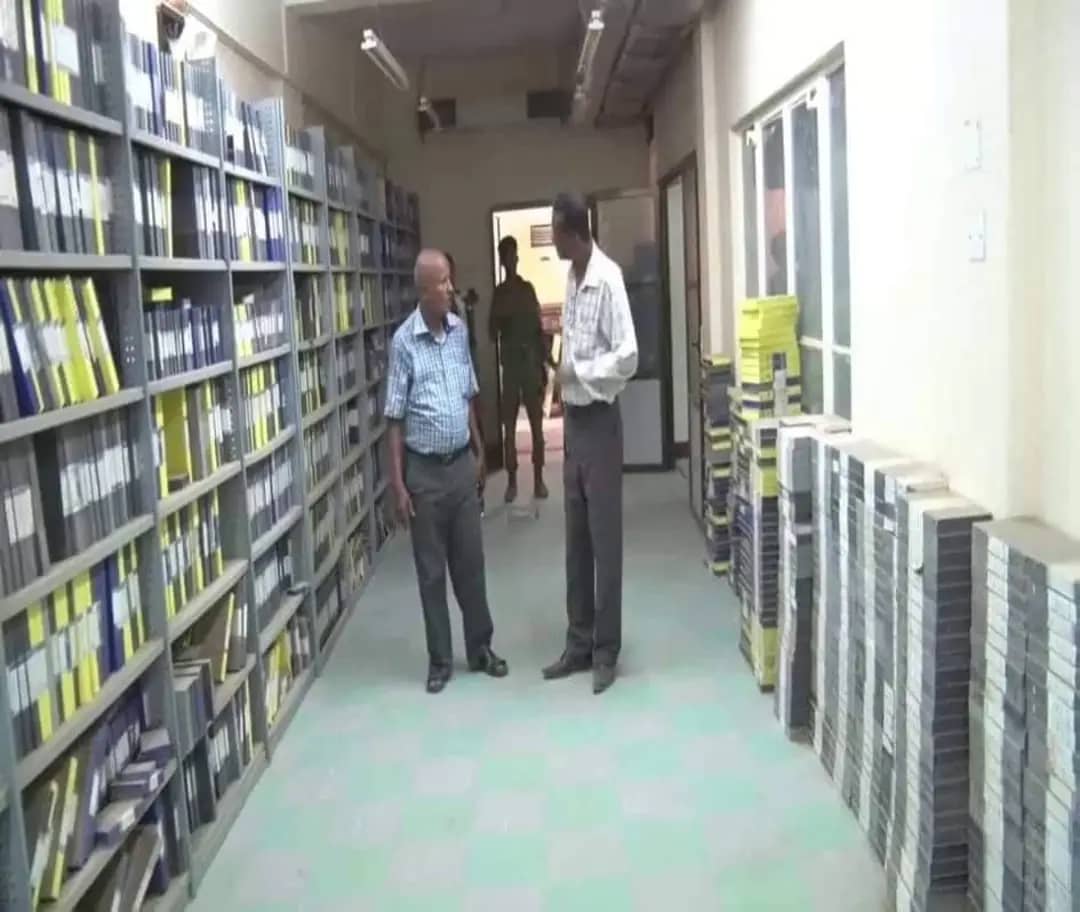
A recent photo seen by "South24" of a part of the Aden Channel library in Al-Tawahi, which looks neglected and dust piles up on its contents (working sources)
Channel library
The formation of the Aden channel library began prior to television broadcasting in 1968, according to writer Ahmed Mahmoud al-Salami, one of the channel's early employees.
Al-Salami said, in his book "Aden Channel from the establishment to the second channel" that "the library's formation began before the television broadcast and it contained 35 mm cinematic tapes. These tapes contained Arab feature films, films, foreign series, songs, and others."
"The library also contained a large amount of medium-sized 16mm film tapes, which included short scientific and social awareness films and foreign songs, in addition to the television's cinematography department's daily production of silent news coverage films," he added.
According to one of the retirees of the Aden channel, who took over the management of programs in previous periods, Aden channel contributed to enriching Sanaa Channel, which was later formed with many tapes and artistic recordings.
The retired, who preferred not to be named, told "South24": "There was a previous cooperation between Aden Channel and Sanaa Channel. The newly established Sanaa channel in 1975 was supplemented with many local materials and songs that were recorded on Aden Channel , such as the artist's songs. Ahmed Al-Sunaidar, Ali Abdullah Al-Sama, Mohammad Hammoud Al-Harthy, Ayoub Tarish and others.
Archive loot
Next to his house, we met Abdul-Qader al-Wuhayshi, a former employee of the Aden Channel and the driver of the vehicle that transported the archives of the channel to Sanaa after the 1994 war, after the Northern forces entered the city.
Al-Wahaishi recalled in an interview with "South24" the details of that incident: "I carried thousands of tapes from the library of Aden Channel to the library of Sanaa's Channel. These tapes were transported in a large white vehicle that I drove myself. Most of the transfers took place at night from Aden to Sanaa. ."
He added, "The number of tapes is estimated to be more than seven thousand tapes, which were transferred under official directions from the director of Aden Channel and Radio at the time, Abdul-Ghani Al-Shamiri. I was accompanied by Abdul Rahman Al-Ziyadi, director of the library and archives of Aden Channel, and we had an official paper containing directions to the security points preventing the interception of the vehicle I was driving."
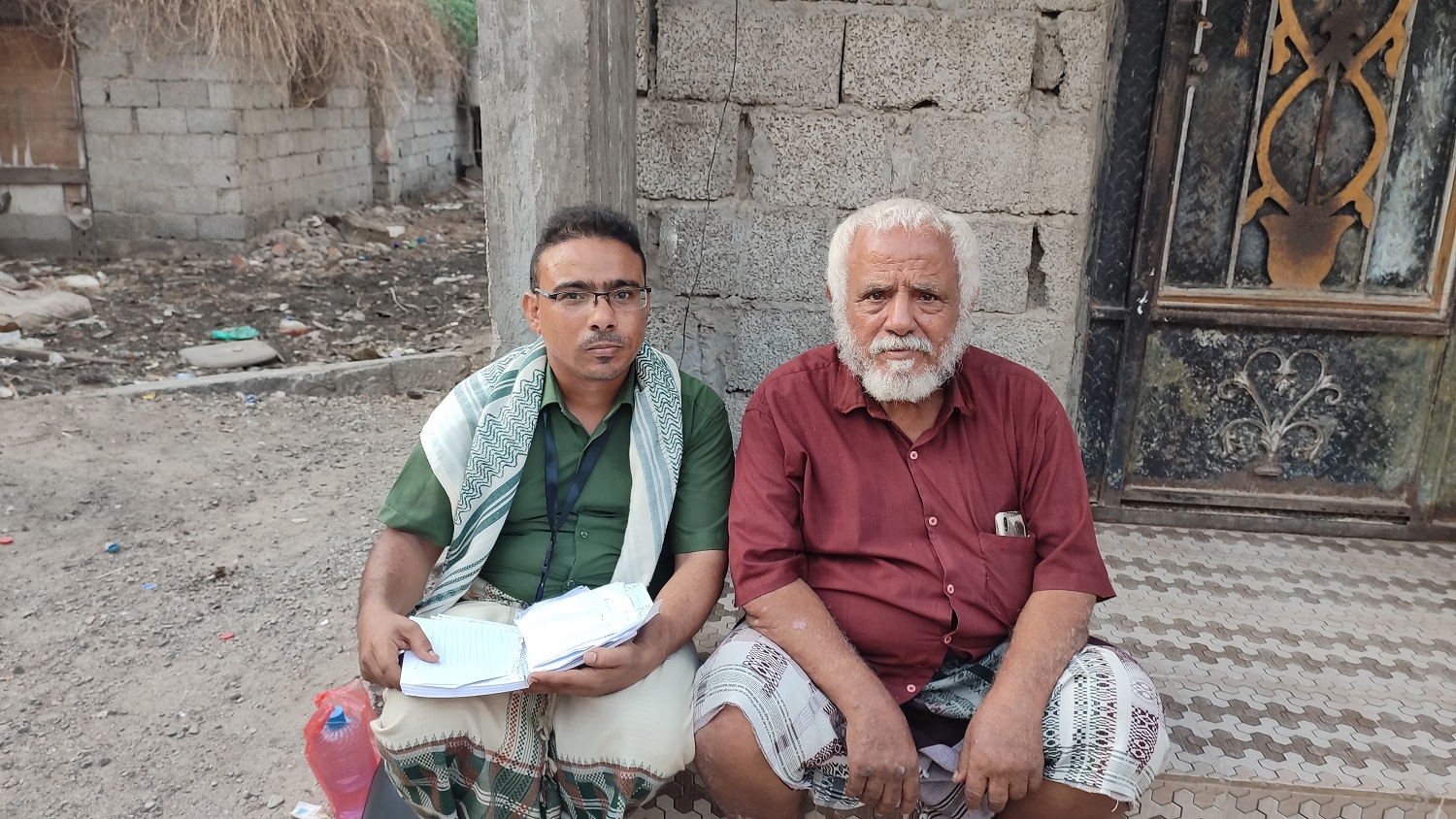
South24 Center delegate with the witness Abdul-Qader Al-Wahishi
Al-Wuhayshi denied what was rumored at the time that the transport vehicle of the Aden Canal archive had been interrupted in the "Bilad Al-Rus" area in Sanaa. The driver of the vehicle believes that this was an attempt by those who directed and supervised the transfer of the archive to cover their work and argued the incident when they were asked to return the archive.
According to the current director of Aden Radio and Television, Muhammad Ghanem, the transfer of the archives of the Aden channel took place in 1996. Ghanem told "South24": "More than 7,000 tapes were transferred during that period."
Who's responsible?
The testimonies of a number of sources interviewed by “South24” coincided that the looting of the Aden archive was carried out with the political will of the unity regime in Sanaa through the director of Aden Channel and Radio at the time, Abdul-Ghani Al-Shamiri.
Regarding this, Mohammad Ghanem said: "The former director of the sector, Abdul-Ghani Al-Shamiri, stole the channel's archive and distributed it to local and international channels." He added, "He was helped in this, unfortunately, by some colleagues in the management of the channel and programs."
"The archive that was looted, we see today in its original version on the Al-Saeeda TV channel, owned by Hamid Al-Shamiri, brother of Abdul-Ghani Al-Shamiri," he added.
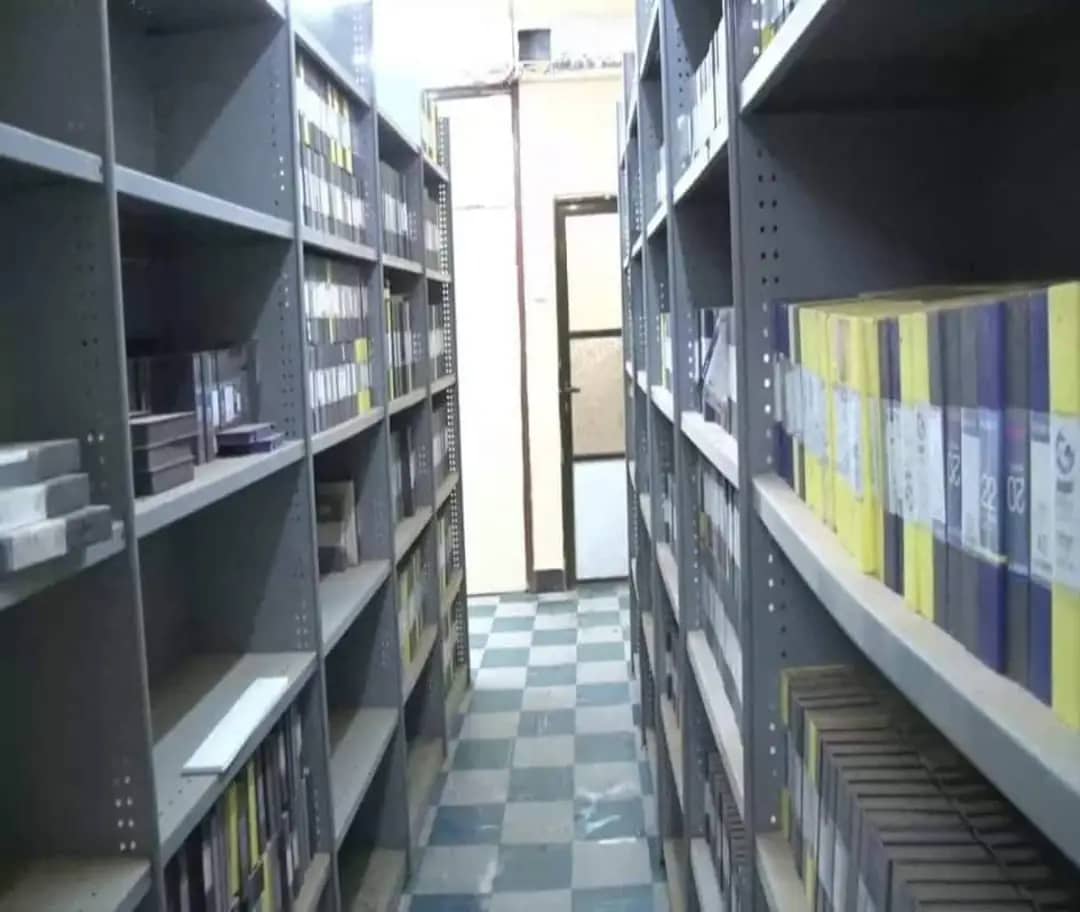
A part of what remains from the library of Aden Channel, a photo obtained by "South24 Center" from working sources
The quality of the "looted" archive
Essentially, the bulk of the Aden Channel archive that was transferred to Sanaa includes the political and artistic and cultural material of South, according to multiple sources that spoke to "South24."
Concerning this, Aden Channel unionist and employee Amer Salam told "South24": "The looted archive revolved around films about the activities of the British and the government of the South Arab Union, the suburbs and protectorates, and the Aden community."
He added: "The transferred archive also included materials related to the events of January 13 in 1986, including trials and others, and a number of former presidents to South Yemen, such as: President Qahtan al-Shaabi, President Salmeen Rabie Ali, President Abdel Fattah Ismail, President Ali Nasser Muhammad, the Prime Minister. Muhammad Ali Haitham.
And he added: "The looted archive also contained some of the trials carried out by the ruling regime in the south at the time against the sultans, and the facts of the trial of the sabotage group [Dahams] in 1982."
The current director of the Aden Radio and Television Sector, Mohammad Ghanem, estimates that "15% of the archives of the Aden channel are what has been transferred to Sanaa TV." He added, "This percentage represented the qualitative and historical archive of the channel library."
Destruction
The Aden Channel archive was not only subjected to transfer and looting. According to former and current employees, the archive was destroyed, deliberately neglected, and damaged.
Saber Al-Tayeb, a current employee in the Aden Channel Library, told "South24": "Many people took over the management of the library, but it was subject to neglect, as the tapes were mixed together, and piled up on the floor of the rooms, and the records on which the contents of those tapes were recorded, and what was borrowed from them were lost. "
He added, "There was no cadre specialized in archiving and libraries, especially the television library, and here lies the secret of the loss that led us to be behind for many years from other televisions after we were at the forefront."
Amer Salam confirmed it: "After the 1994 war, I personally saw one of the two-inch tapes thrown on the ladder of the channel. It had the words [Southern People's Negotiations for Independence in Geneva] written on it." He added, "When I asked what brought this tape here, I was told that some tapes were taken and kept in the State Political Security building, then returned and thrown without any care."
Special sources revealed to "South24" that many of the tapes of the Aden Channel Library were transferred to a room that was built in the heat and humidity behind the "Albino" building adjacent to the Aden Channel building. The sources indicated that these tapes are still there today.
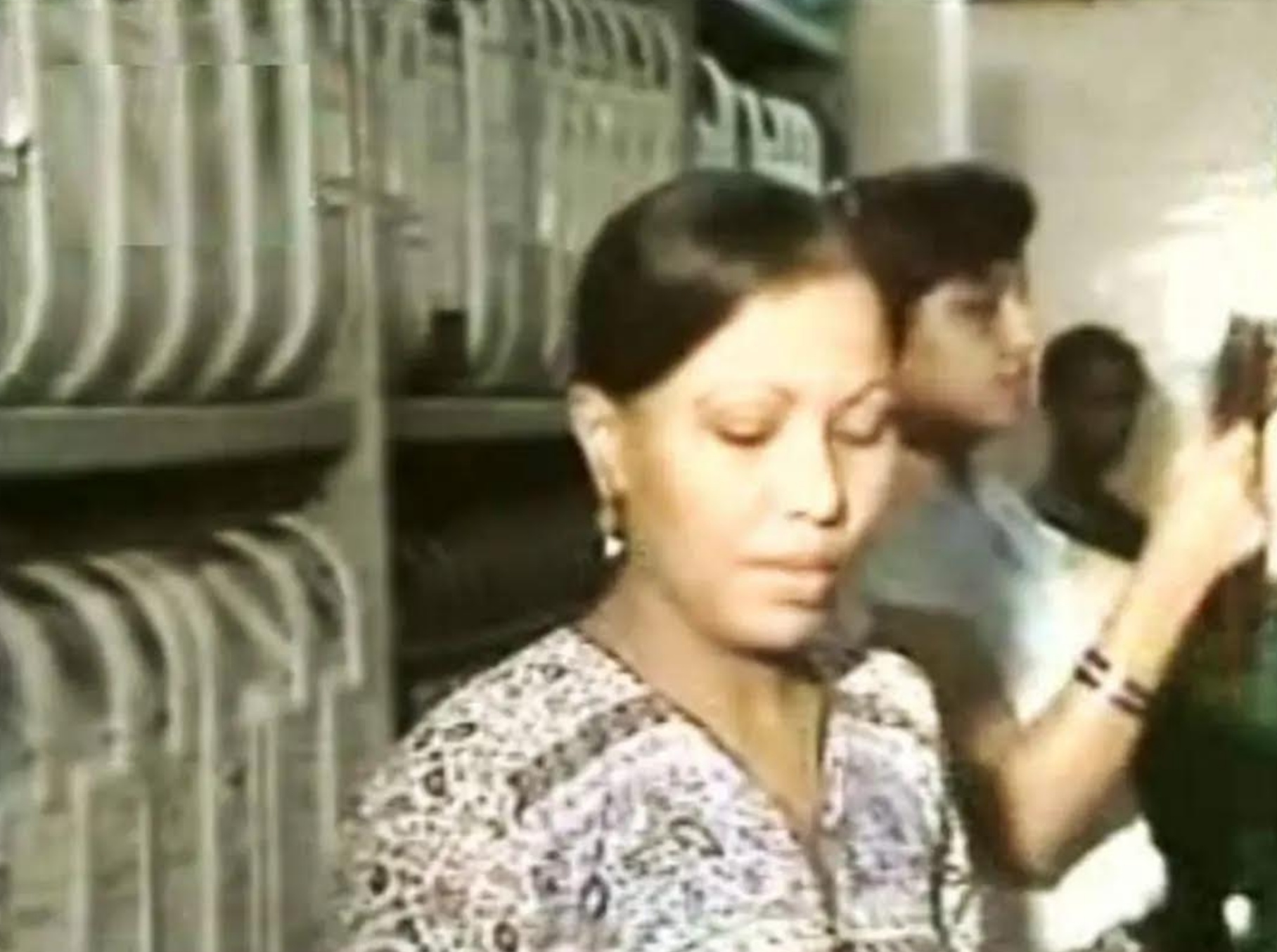
Female employees of the Aden Channel Library, in the eighties of the last decade, before entering into unity with North Yemen (library archive)
Accountability
"South24" contacted responsible media agencies in the capital, Aden, to ask about whether there are plans and intentions to hold accountable and prosecute those involved in the looting of Aden's archives today.
The Yemeni Minister of Information, Muammar Al-Eryani, referred us to his deputy, Hussein Omar Baslim, to respond to inquiries made by "South24". Baslim denied knowledge of the existence of such a case. The man seemed not to be sure of this, despite the fact that Arab channels are now showing this archive in front of millions.
Baslim told us, "The Ministry of Information has nothing to confirm or deny what was recently suggested about the leakage of the Aden Channel archives."
"To confirm this matter, extensive investigations must be conducted. The channel building has been closed since 2005, but it was robbed immediately after the 2015 war, when important and modern television equipment and equipment were stolen from the building's warehouses in Baltawahi District," he added.
He continued, "In 2018, it was rehabilitated again by the government with an amount of 427 million riyals, and today it is important to work on completing the rehabilitation and preparation process for this newly built building."
On the other hand, the head of the National Southern Media Authority, Ali Al-Kathiri, told "South24": "Certainly, what happened to the archives of Aden Channel is a condemned and rejected crime."
He added, "This rich archive was looted in the wake of the 1994 invasion of Aden. This archive represents a living memory of part of the history of South, and I believe that what happened is criminalized by all laws and regulations."
"We are currently studying with legal experts what can be done to prosecute the parties and individuals who have been proven to be involved in looting the archive and disposing of it in a manner that warrants trial, as well as examining the legal context through which the Aden Channel can be retrieved for Aden and for South first, and the looted archive, which unfortunately is now being sold to external media," he added.
The senior official in the STC pointed out that they had begun to collect what was available from the archives of the Aden channel, "particularly what was preserved by some individuals working in Aden Channel and Radio", hoping that this would be done "as soon as possible."
Saving what's left
Aden Channel staff who spoke to "South24" called for what remains of the Aden Channel archives to be saved from damage.
Amer Salam said: "There is a very important cultural and artistic archive that is still largely neglected in the old documentary library. Some tapes were damaged and melted as a result of the intense heat and the absence of air conditioning."
He added, "The archive includes Ahmed Qassem's songs, recordings of revolutionary songs, revolutionary songs that were shown on the stage of the Aden trade unions, and many of the festivals and exhibitions that were taking place in the city."
"And from that archive, the archive of the Radio Library, including tapes, some of which date back to 1954, including the tape of the founding anniversary, which I heard myself in the days of director Akram Mohsen on the first anniversary of Radio Aden in 1954," he added
The official Aden Channel archive is one of dozens of stories of what government institutions were subjected to in the city of Aden following the victory of the unity regime and the defeat of the Southern leaders and their departure from the state. Over the course of the post-war years, the archive appeared on the screen of local Northern channels, some of which follow the Houthi movement, and international channels, especially the political part of it, which was systematically employed to try to provoke disputes between the people of South Yemen and fuel decades-old wounds.